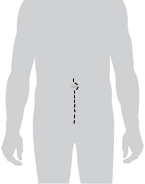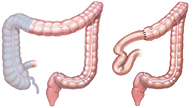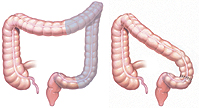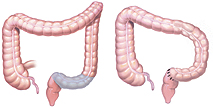Having Open Colon Surgery
Having Open Colon Surgery
During colorectal surgery, parts of the colon or rectum are surgically removed. You will be given instructions on how to get ready for your surgery. Follow these instructions carefully. You will likely be admitted to the hospital on the day of your surgery. In certain cases, you may need to be admitted to the hospital the day before. Ask questions if something is unclear.
Preparing a few weeks before surgery
Here is what you can do to prepare weeks before surgery:
Have a complete physical exam as instructed by your healthcare provider.
Ask about medicines. Tell your surgeon about all medicines you take, and ask whether you should stop taking them. This includes prescription medicines, aspirin and other nonsteroidal anti-inflammatory (NSAIDs),and other over-the-counter medicines. Mention any herbs or supplements you take.
Quit smoking. Smoking increases surgery risks and slows healing.
Exercise. Stay on a program of regular exercise.
Preparing the day before surgery
Follow any directions you are given for taking medicines and for not eating or drinking before surgery. This includes any instructions you are given for doing bowel prep.
The day of surgery
When you arrive at the hospital, you will be asked fill out certain forms. You will then change into a gown. An IV (intravenous) line will be inserted into your arm. This gives you fluids and medicines. You’ll meet with your anesthesiologist or nurse anesthetist to discuss the medicine that helps you sleep during surgery. Ask any questions you have at this time. Before surgery begins, you’ll be given general anesthesia to put you into a deep sleep. A soft tube called a catheter may be placed into your bladder to drain urine.
During your surgery
Here is what you can expect during surgery:
Your surgery will be done through one cut (incision) in your belly. This is called open surgery. The incision may be several inches long. Your surgeon can tell you about the incision you will have.
The problem part of the colon is resected (removed). Sometimes the two ends of the colon are joined. This is called an anastomosis.
Once surgery is done, you’ll be taken to a recovery room.
Types of colon resection
The idea of having part of your colon removed may sound scary. But part or all of the colon can be resected (removed) without causing serious problems. After the section of bowel is removed, the two ends may be reconnected (anastomosis). Below are some of the surgeries that can be performed on the colon. The type of surgery depends on the location of the colon problem.
Right hemicolectomy Part or all of the right side (ascending) colon is removed. The remaining colon is then reconnected to the small intestine. |
Left hemicolectomy Part or all of the left side (descending) colon is removed. The remaining colon is then reconnected to the rectum. |
Sigmoid colectomy (sigmoidectomy) Part or all of the sigmoid colon is removed. The descending colon is then reconnected to the rectum. |
Other times, the exposed end of the colon or small intestine is sewn to the abdominal wall through an incision. It will then drain into a special bag. This procedure is called a colostomy or ileostomy. Your surgeon can discuss this with you at your visit before surgery.
Risks and possible complications
Risks and possible complications of colon surgery include:
Infection
Injury to nearby organs, such as the kidneys
Leaking or separation of anastomosis
Development of adhesions and bowel obstruction
Internal bleeding
Blood clots
Risks of anesthesia
Recurrence of your condition
Updated:
March 21, 2017
Sources:
The Effects of Preoperative Exercise Therapy on Postoperative Outcome: A Systematic Review. Valkenet K. Clinical Rehabilitation. 2011;(25)2:99-111.
Reviewed By:
Lehrer, Jenifer, MD,Sather, Rita, RN



